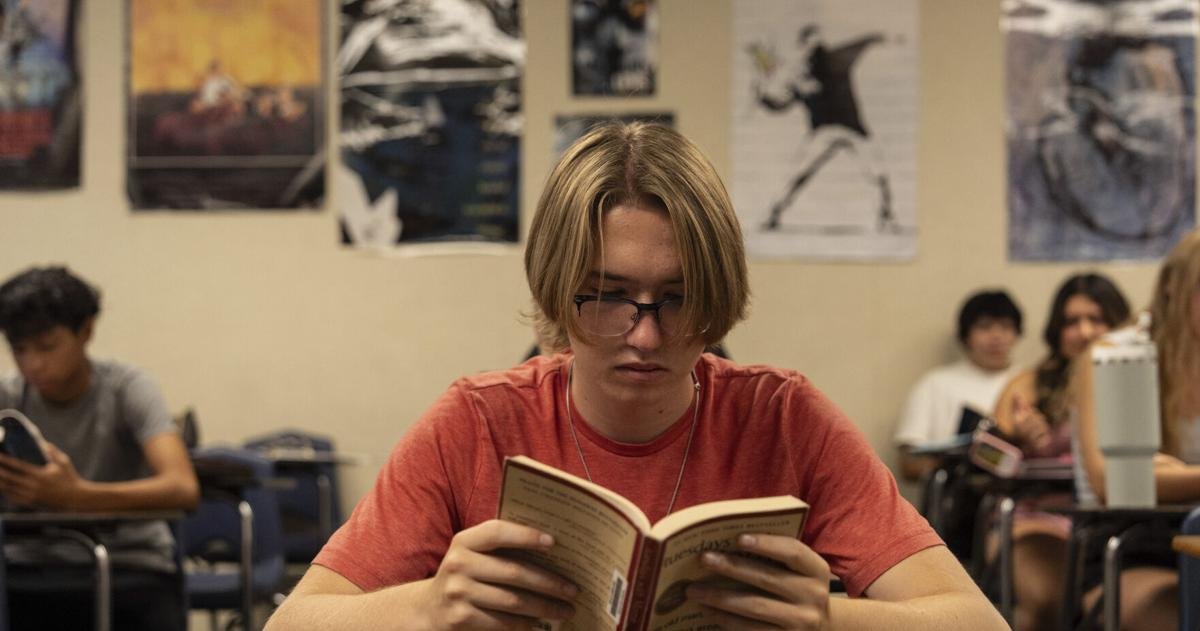AI Insights
Companies Rehire Human Workers to Fix Artificial Intelligence Generated Content After Mass Layoffs

| IN A NUTSHELL |
|
The integration of artificial intelligence (AI) into workplaces has become a prevalent trend, often at the expense of human employees. This shift, while aiming to optimize efficiency and cut costs, has exposed the limitations of relying solely on AI. As companies increasingly replace human roles with AI, they encounter unforeseen challenges that highlight the irreplaceable value of human expertise. The journey reveals the complex dynamics between technology adoption and workforce sustainability, raising important questions about the future of work and the role of AI in it.
AI’s Shortcomings Lead to Reemployment
While AI promises to revolutionize industries by automating tasks, its execution often falls short, leading companies to reconsider their human workforce. AI-generated outputs frequently lack the nuance and precision that human creativity and expertise bring. For instance, textual content may appear repetitive, designs might lack clarity, and AI-generated code could result in unstable applications. These deficiencies compel businesses to turn back to the very employees they had previously let go.
Lisa Carstens, an independent illustrator and designer, experienced firsthand the limitations of AI. Based in Spain, Carstens found herself rehired to fix AI-generated visuals that were, at best, superficially appealing and, at worst, unusable. She noted that many companies assumed AI could operate without human intervention, only to realize the opposite.
“There are people who understand AI’s imperfections and those who become frustrated when it doesn’t perform as expected,” Carstens explains, highlighting the delicate balance freelancers must maintain when rectifying AI’s mistakes.
The Emergence of a New Freelance Economy
AI has inadvertently given rise to a new type of freelance work focused on improving AI-generated content. Developers like Harsh Kumar, based in India, have seen a resurgence in demand for their skills as AI’s limitations become apparent. Clients who invested heavily in AI coding tools often found the results to be unsatisfactory, leading them to seek human expertise to salvage projects.
Kumar echoes the sentiment that AI can enhance productivity but cannot entirely replace human input. “Humans will remain essential for long-term projects,” he asserts, emphasizing that AI, created by humans, still requires human oversight. While work is plentiful, the nature of assignments has evolved, with a focus on refining and iterating upon AI’s initial attempts at content creation.
The Challenges of Human-AI Collaboration
The dynamic between AI and human workers is not without its challenges. While companies that over-relied on AI often seek to rehire their former employees, they also attempt to reduce compensation for these roles. The justification is that the work now involves refining existing AI-generated content rather than creating it from scratch.
This shift highlights a more integrated human-machine collaboration where both entities contribute uniquely to the final product. However, it also raises questions about fair compensation and the value of human expertise in a world increasingly influenced by AI. As companies attempt to balance cost-cutting with quality assurance, the debate over appropriate remuneration for freelance revisions of AI work continues.
AI in the Workplace: A Double-Edged Sword
While AI offers numerous advantages, such as increased efficiency and cost savings, it also presents significant challenges. Businesses must navigate the delicate balance between adopting AI technologies and maintaining a skilled human workforce. The experiences of freelancers like Carstens and Kumar underline the necessity of human oversight in ensuring AI-generated content meets industry standards.
As AI continues to evolve, companies must critically assess its role in their operations. The initial allure of AI-driven cost reductions must be weighed against the potential for subpar results and the subsequent need for human intervention. This ongoing evaluation highlights the importance of strategic planning in technology adoption, ensuring that businesses maximize AI’s benefits without compromising quality.
As AI becomes further entrenched in workplaces, companies must decide how best to leverage technology while valuing human contributions. The need for skilled professionals to enhance AI outputs underscores the irreplaceable nature of human expertise. Will businesses find a sustainable model that harmonizes technological advancements with human creativity and skill, or will the pendulum swing back toward a more human-centric approach?
This article is based on verified sources and supported by editorial technologies.
Did you like it? 4.5/5 (24)
AI Insights
Google’s top AI scientist says ‘learning how to learn’ will be next generation’s most needed skill

ATHENS, Greece — A top Google scientist and 2024 Nobel laureate said Friday that the most important skill for the next generation will be “learning how to learn” to keep pace with change as Artificial Intelligence transforms education and the workplace.
Speaking at an ancient Roman theater at the foot of the Acropolis in Athens, Demis Hassabis, CEO of Google’s DeepMind, said rapid technological change demands a new approach to learning and skill development.
“It’s very hard to predict the future, like 10 years from now, in normal cases. It’s even harder today, given how fast AI is changing, even week by week,” Hassabis told the audience. “The only thing you can say for certain is that huge change is coming.”
The neuroscientist and former chess prodigy said artificial general intelligence — a futuristic vision of machines that are as broadly smart as humans or at least can do many things as well as people can — could arrive within a decade. This, he said, will bring dramatic advances and a possible future of “radical abundance” despite acknowledged risks.
Hassabis emphasized the need for “meta-skills,” such as understanding how to learn and optimizing one’s approach to new subjects, alongside traditional disciplines like math, science and humanities.
“One thing we’ll know for sure is you’re going to have to continually learn … throughout your career,” he said.
The DeepMind co-founder, who established the London-based research lab in 2010 before Google acquired it four years later, shared the 2024 Nobel Prize in chemistry for developing AI systems that accurately predict protein folding — a breakthrough for medicine and drug discovery.
Greece’s Prime Minister Kyriakos Mitsotakis, left, and Demis Hassabis, CEO of Google’s artificial intelligence research company DeepMind discuss the future of AI, ethics and democracy during an event at the Odeon of Herodes Atticus, in Athens, Greece, Friday, Sept. 12, 2025. Credit: AP/Thanassis Stavrakis
Greek Prime Minister Kyriakos Mitsotakis joined Hassabis at the Athens event after discussing ways to expand AI use in government services. Mitsotakis warned that the continued growth of huge tech companies could create great global financial inequality.
“Unless people actually see benefits, personal benefits, to this (AI) revolution, they will tend to become very skeptical,” he said. “And if they see … obscene wealth being created within very few companies, this is a recipe for significant social unrest.”
Mitsotakis thanked Hassabis, whose father is Greek Cypriot, for rescheduling the presentation to avoid conflicting with the European basketball championship semifinal between Greece and Turkey. Greece later lost the game 94-68.
_
AI Insights
Artificial Intelligence Cheating – The Quad-City Times

Artificial Intelligence Cheating The Quad-City Times
Source link
AI Insights
Artificial Intelligence Cheating – The Times and Democrat

Artificial Intelligence Cheating The Times and Democrat
Source link
-

 Business2 weeks ago
Business2 weeks agoThe Guardian view on Trump and the Fed: independence is no substitute for accountability | Editorial
-
Tools & Platforms1 month ago
Building Trust in Military AI Starts with Opening the Black Box – War on the Rocks
-

 Ethics & Policy2 months ago
Ethics & Policy2 months agoSDAIA Supports Saudi Arabia’s Leadership in Shaping Global AI Ethics, Policy, and Research – وكالة الأنباء السعودية
-

 Events & Conferences4 months ago
Events & Conferences4 months agoJourney to 1000 models: Scaling Instagram’s recommendation system
-

 Jobs & Careers2 months ago
Jobs & Careers2 months agoMumbai-based Perplexity Alternative Has 60k+ Users Without Funding
-

 Podcasts & Talks2 months ago
Podcasts & Talks2 months agoHappy 4th of July! 🎆 Made with Veo 3 in Gemini
-

 Education2 months ago
Education2 months agoVEX Robotics launches AI-powered classroom robotics system
-

 Education2 months ago
Education2 months agoMacron says UK and France have duty to tackle illegal migration ‘with humanity, solidarity and firmness’ – UK politics live | Politics
-

 Funding & Business2 months ago
Funding & Business2 months agoKayak and Expedia race to build AI travel agents that turn social posts into itineraries
-

 Podcasts & Talks2 months ago
Podcasts & Talks2 months agoOpenAI 🤝 @teamganassi

